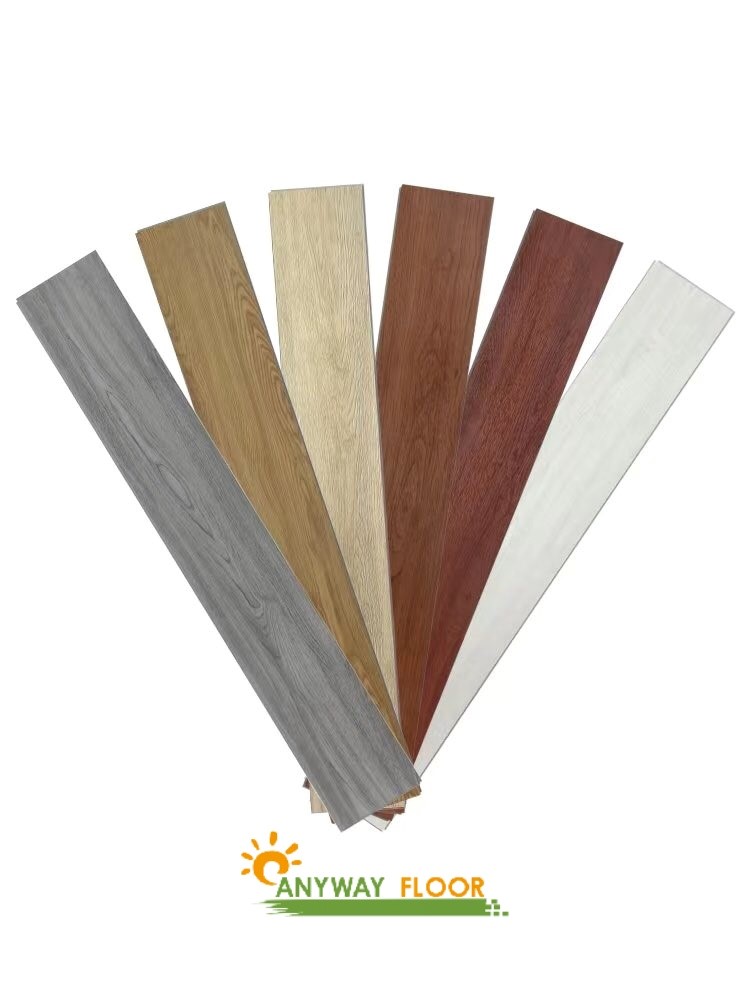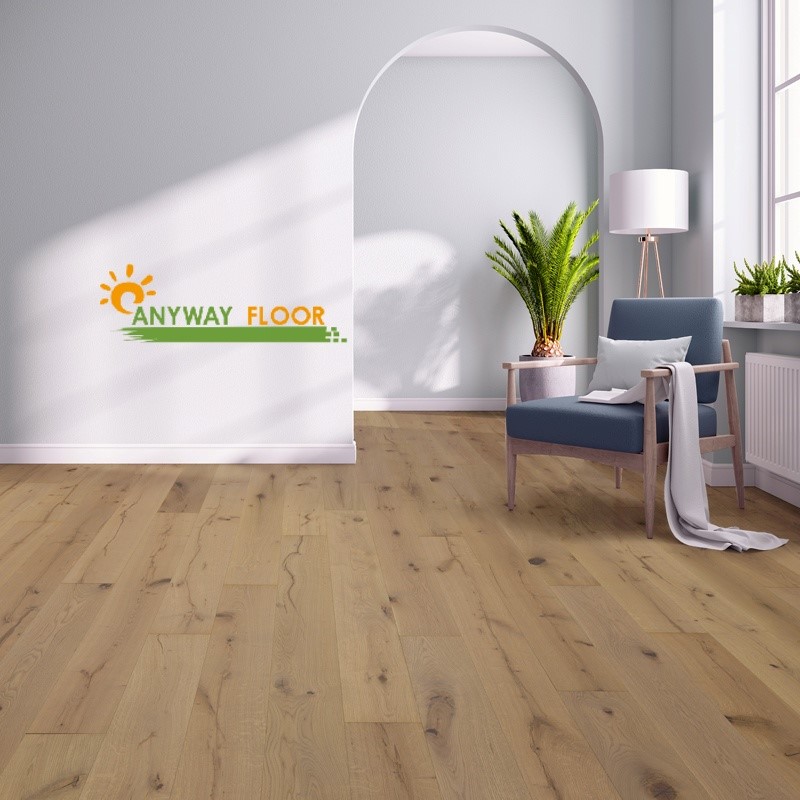Views: 477 Author: Site Editor Publish Time: 2023-03-16 Origin: Site









SPC Flooring vs. Vinyl Plank: Which is the Better Option?
SPC (Stone Plastic Composite) flooring and Vinyl plank flooring are two of the most popular options in the flooring industry today. Both types of flooring have their unique features, advantages, and disadvantages. Choosing between SPC flooring and Vinyl plank flooring can be a daunting task, especially if you are not familiar with the differences between them. In this article, we will compare and contrast SPC flooring and Vinyl plank flooring to help you make an informed decision.


SPC flooring is a type of rigid-core vinyl flooring that is made up of a stone-plastic composite core, which is made from limestone powder, polyvinyl chloride (PVC), and stabilizers. The core is then topped with a printed vinyl layer and a clear protective layer. The result is a highly durable, waterproof, and scratch-resistant flooring option that is perfect for high-traffic areas.
SPC flooring is known for its dimensional stability, meaning it does not expand or contract in response to changes in temperature and humidity, making it a great choice for areas with varying
temperature and humidity levels.
Vinyl plank flooring, also known as Luxury Vinyl Plank (LVP), is a type of synthetic flooring made of multiple layers of PVC, topped with a printed design layer and a clear protective layer. The printed design layer can be made to resemble various materials like wood, stone, and tile. Vinyl plank flooring is known for its durability, water-resistance, and ease of maintenance. Vinyl plank flooring comes in two main types, Glue-down and click-lock. Glue-down vinyl plank flooring is installed using an adhesive, while click-lock vinyl plank flooring is installed using a locking system.
In terms of material composition, both SPC flooring and vinyl plank flooring have their unique features and advantages. SPC flooring is made of a stone-plastic composite core, which gives it its rigid structure and dimensional stability. This makes it more resistant to impacts, heavy foot traffic, and extreme temperatures. The stone-plastic composite core also makes SPC flooring more water-resistant than vinyl plank flooring, making it ideal for areas prone to moisture like bathrooms and kitchens.
On the other hand, vinyl plank flooring is made of multiple layers of PVC, which gives it its flexibility. The multiple layers also make vinyl plank flooring more resistant to scratches and dents than SPC flooring. Vinyl plank flooring is also easy to install and can be installed over existing flooring. When it comes to choosing between SPC flooring and vinyl plank flooring based on material composition, it ultimately depends on the specific needs and preferences of the homeowner. If you are looking for a flooring option that is highly durable, water-resistant, and can withstand extreme temperatures, SPC flooring may be the better option.

When it comes to durability, both SPC flooring and vinyl plank flooring are known for their toughness and longevity. However, there are some differences between the two that can influence your decision. SPC flooring is more rigid and denser than vinyl plank flooring, which makes it more resistant to impacts and heavy foot traffic. This rigidity also means that it is less likely to expand or contract with changes in temperature and humidity, making it ideal for areas with varying climate conditions. SPC flooring is also scratch-resistant and can withstand exposure to sunlight and extreme temperatures without warping or fading.
Vinyl plank flooring is also durable and can withstand heavy foot traffic and exposure to sunlight. However, it is not as rigid as SPC flooring and is more prone to scratches and dents. Vinyl plank flooring is also susceptible to warping or fading if exposed to extreme temperatures or sunlight for prolonged periods. In terms of overall durability, SPC flooring is generally considered to be the more robust option. Its stone-plastic composite core provides exceptional strength and resistance to wear and tear, making it ideal for high-traffic areas in both residential and commercial settings.
When it comes to water-resistance, SPC flooring is generally considered to be superior to vinyl plank flooring. The stone-plastic composite core of SPC flooring makes it highly resistant to water damage, even in areas with high levels of moisture or humidity. SPC flooring is also resistant to stains and spills, making it an ideal choice for areas like kitchens, and basements. In contrast, while vinyl plank flooring is also water-resistant, it is not as impervious to moisture as SPC flooring. Vinyl plank flooring can be susceptible to water damage if exposed to prolonged moisture, which can cause the planks to warp or buckle. As a result, vinyl plank flooring may not be the best option for areas with high levels of moisture or where there is a risk of water damage.
If water-resistance is a top priority for you, then SPC flooring may be the better choice. Its water-resistant properties make it ideal for use in areas where spills, stains, or moisture are common. This makes it a popular choice for homeowners looking for a low-maintenance flooring option that can withstand the demands of everyday life. However, if water-resistance is not a primary concern, then vinyl plank flooring may be a more cost-effective and practical option. It is still water-resistant to a degree and can provide the same aesthetic appeal and durability as SPC flooring, but at a lower price point.
Both SPC flooring and vinyl plank flooring are relatively easy to install, but there are some differences between the two that may influence your decision.
SPC flooring typically comes with a click-lock or floating installation system, which makes it easy to install without the need for adhesive. This means that you can install SPC flooring quickly and easily, even if you don't have much experience with DIY projects. The rigid nature of SPC flooring also means that it can be installed over almost any type of subfloor, including concrete, tile, or existing flooring.
Vinyl plank flooring is also easy to install and typically comes with a click-lock or adhesive installation system. However, it is not as rigid as SPC flooring, which means that it may not be as forgiving when it comes to imperfections in the subfloor. This means that you may need to spend more time preparing your subfloor before installing vinyl plank flooring to ensure a smooth and even surface.
In terms of overall installation ease, SPC flooring is generally considered to be the more user-friendly option. Its click-lock or floating installation system makes it easy to install without the need for specialized tools or extensive preparation work. This makes it a popular choice for homeowners who are looking for a low-maintenance flooring option that can be installed quickly and easily.
When it comes to maintenance, SPC flooring and vinyl plank flooring are both relatively low-maintenance options. However, there are some differences between the two that may influence your decision.
SPC flooring is generally considered to be more durable and resistant to scratches, stains, and wear and tear than vinyl plank flooring. This means that it requires less maintenance and upkeep over time, as it is less susceptible to damage and wear. Additionally, because SPC flooring is water-resistant, it can be cleaned easily with a damp mop or cloth, making it a convenient option for busy homeowners.


Vinyl plank flooring, while still durable, is not as resistant to scratches, stains, and wear and tear as SPC flooring. This means that it may require more maintenance and upkeep over time, especially in high-traffic areas. Additionally, because vinyl plank flooring is not completely water-resistant, it may require special cleaning products or methods to maintain its appearance over time.
Generally, if you prioritize low maintenance and durability, then SPC flooring is the better choice. Its water-resistant and scratch-resistant properties make it a low-maintenance option that can withstand the demands of everyday use. However, if you don't mind investing some time and effort into maintenance and are looking for a more budget-friendly option, then vinyl plank flooring may be a practical choice for your home. In either case, it is important to follow the manufacturer's recommendations for cleaning and maintenance to ensure that your flooring stays looking its best over time. This may include regular sweeping or vacuuming, avoiding harsh chemicals or abrasive cleaners, and addressing spills or stains promptly to prevent damage to the flooring. By following these simple maintenance tips, you can keep your SPC or vinyl plank flooring looking beautiful and functional for years to come.
Price is an important factor to consider when choosing between SPC flooring and vinyl plank flooring. Both options can offer a budget-friendly alternative to more expensive flooring materials, such as hardwood or ceramic tile. However, there are some differences in price between the two that may influence your decision. SPC flooring is generally considered to be a slightly more expensive option than glue down vinyl plank flooring. This is because it is thicker and made of a higher quality material and typically offers better durability, water-resistance, and sound insulation properties. Additionally, because SPC flooring is a relatively new product, it may not be as widely available as vinyl plank flooring, which can also contribute to its higher price point.
Glue down Vinyl plank flooring, on the other hand, is generally considered to be a more budget-friendly option than SPC flooring. While it may not offer the same level of durability or water-resistance as SPC flooring, it can still provide a stylish and functional flooring option for a fraction of the cost of other materials. Additionally, because vinyl plank flooring is widely available and can be purchased from a variety of retailers, it is often more accessible and easier to find than SPC flooring. Ultimately, the choice between SPC flooring and vinyl plank flooring will depend on your budget and your specific needs and preferences. If you are looking for a high-quality flooring option that offers superior durability and water-resistance, then SPC flooring may be worth the additional cost.
How To Clean Vinyl Floors: Simple Techniques for Shiny Results
A Comprehensive Walkthrough: Installing Water-Resistant Laminate Flooring by Anyway Flooring
Exploring the Water Resistance in Laminate Flooring: A Comprehensive Analysis
Designing Your Dream Space with SPC Flooring: Trends and Inspiration
Why SPC Flooring is the Best Choice for Your Home or Business